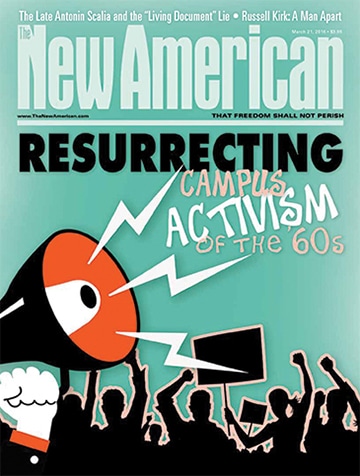The “Living document” Lie
“There is no better way of exercising the imagination than the study of law. No poet ever interpreted nature as freely as a lawyer interprets the truth.”
— Jean Giraudoux,
French dramatist and diplomat
It’s a great quality when a storyteller can make fiction come alive. When another kind of storyteller makes a legal document appear as fiction, it’s something else entirely. One man who certainly agreed was the late, great Justice Antonin Scalia, whose death February 13 shook the political world. Considered by many the foremost jurist on the Supreme Court, Scalia was known for his keen intellect and biting, colorful dissenting opinions, which he once said were designed to be read by law students. Sometimes rendered with satirical sublimity, Scalia’s critiques were so engaging that even Lauren Leatherby, of liberal National Public Radio, acknowledged last year that his “sharp-tongued zingers and the clever stylings of the other justices make for a — dare I say it — even enjoyable read of the legalese of the Supreme Court.” For sure. Given to using descriptive terms, phrases, and declarations such as “pure applesauce,” “jiggery-pokery,” “tutti-frutti,” “argle-bargle,” “Sphinx … of judicial arrogance,” and “Ask the nearest hippie,” his derision was so captivating he made being insulted an enjoyable experience.
JBS Member?
Sign in with your ShopJBS.org account.
 Subscribe Now
Subscribe Now
- 12 Issues Per Year
- Digital Edition Access
- Digital Insider Report
- Exclusive Subscriber Content
- Audio provided for all articles
- Unlimited access to past issues
- Cancel anytime.
- Renews automatically
 Subscribe Now
Subscribe Now
- 12 Issues Per Year
- Print edition delivery (USA)
*Available Outside USA - Digital Edition Access
- Digital Insider Report
- Exclusive Subscriber Content
- Audio provided for all articles
- Unlimited access to past issues
- Cancel anytime.
- Renews automatically


